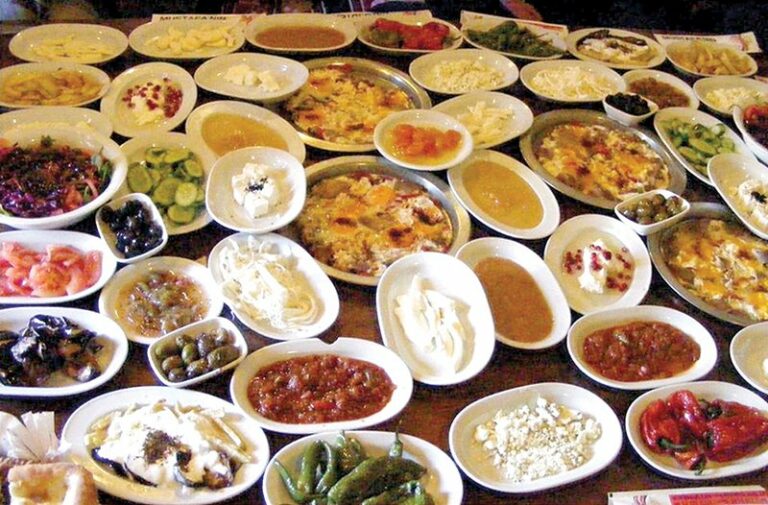Introduction: Turkish cuisine during festivals
Turkish cuisine is known for its rich and diverse flavors that reflect centuries of cultural and culinary influence. During Turkish festivals and special occasions, food plays a central role in bringing people together and celebrating the country’s unique heritage. From savory meat dishes to sweet treats, there is no shortage of delicious options to savor during these festive times.
Meat dishes: Kebabs, lamb, and chicken
Kebabs are a staple of Turkish cuisine and are commonly served during festivals and special occasions. Made with marinated chunks of meat that are grilled on skewers, kebabs come in a variety of styles, including shish kebab, adana kebab, and doner kebab. Lamb is another popular meat in Turkish cuisine, often served in stews, roasts, or grilled kebabs. Chicken is also a common meat used in Turkish dishes, often prepared as tandoori-style chicken or as a filling for savory pastries like borek.
Vegetarian options: Dolma, borek, and pilaf
Vegetarian options are plentiful in Turkish cuisine, with many dishes featuring a variety of vegetables and legumes. Dolma, which means “stuffed” in Turkish, is a dish made with vegetables like peppers, eggplants, and zucchini that are filled with a mixture of rice, onions, and spices. Borek is a popular pastry that can be filled with cheese, spinach, or potatoes, and is often served at breakfast or as a snack. Pilaf, a rice dish that is cooked with vegetables and spices, is another vegetarian option that is commonly served at festivals and special occasions.
Sweet treats: Baklava, Turkish delight, and more
Turkish sweets are famous for their mouthwatering sweetness and unique flavors. Baklava, a pastry made with layers of phyllo dough, chopped nuts, and honey syrup, is a staple at festivals and special occasions. Turkish delight, or lokum, is a gel-like candy that comes in a variety of flavors, including rosewater, pistachio, and lemon. Other popular sweet treats include halva, a dense sesame seed dessert, and sutlac, a creamy rice pudding.
Street food: Doner kebab, simit, and roasted chestnuts
Turkish street food is a popular option for festival-goers looking for a quick and delicious snack. Doner kebab, made with shaved meat that is wrapped in a pita or lavash bread, is a popular street food that can be found throughout the country. Simit, a baked bread that is coated with sesame seeds, is another popular street food that is often enjoyed as a breakfast pastry or snack. Roasted chestnuts, a common street food during the fall and winter months, are a warm and comforting snack that can be found on street corners and at festivals throughout the country.
Conclusion: Celebrating Turkish culture through food
Turkish cuisine is a reflection of the country’s rich cultural history and diverse culinary traditions. During festivals and special occasions, food plays an integral role in bringing people together to celebrate and savor the flavors of Turkish culture. From savory meat dishes to sweet treats and street food, there is no shortage of delicious options to enjoy during these festive times. By exploring Turkish cuisine, we can gain a deeper appreciation for the country’s unique heritage and celebrate its rich culinary traditions.

